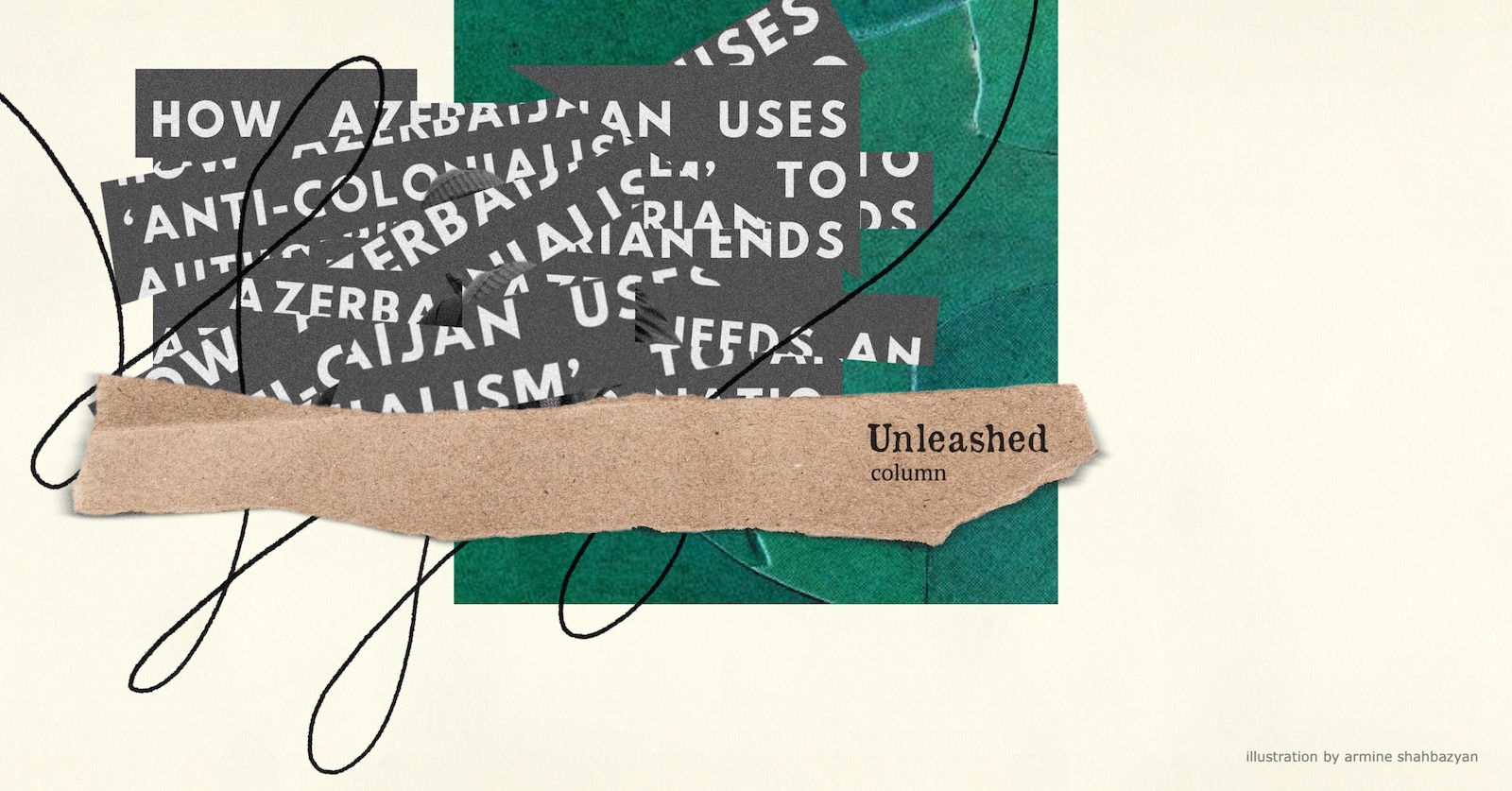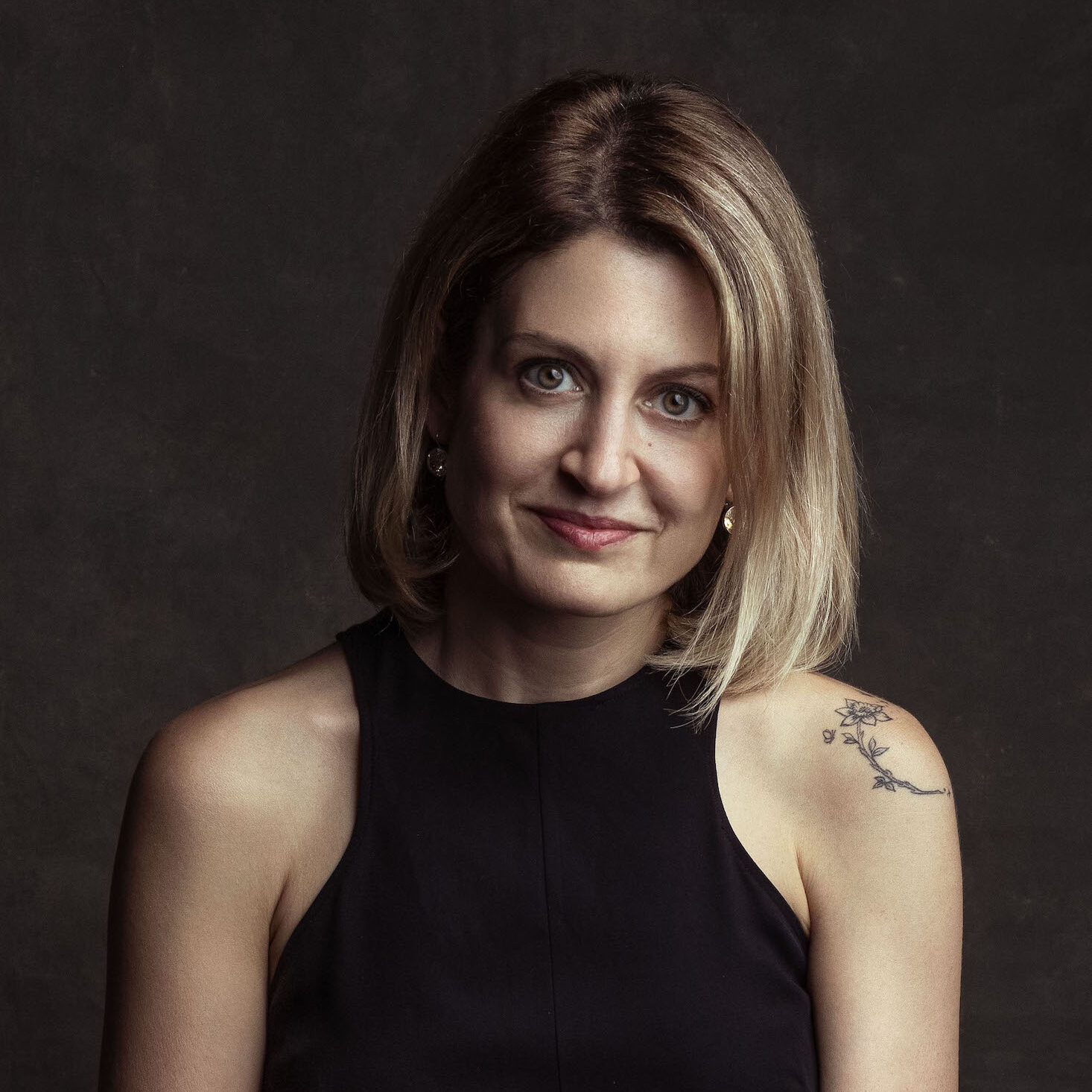

Dear Bahruz,
We’ve never met. I don’t remember when we started following each other on social media. Sometime after the 2020 war, I suppose. That’s as far as our connection goes. I was, of course, well acquainted with your work on the dangers of militarism in Azerbaijan, your principled anti-war stance, and your advocacy for peaceful coexistence between Armenians and Azerbaijanis. As for any actual exchanges between us, maybe we liked each other’s posts once or twice, or perhaps shared a passing thought or two, though I can’t quite recall. Nothing more. That was it.
But on August 21 last year, when news broke of your arrest, I felt it in my chest like a blow. I was stunned. And then I couldn’t stop refreshing my feeds, combing through every scrap of information, hoping that it was some mistake. When it became clear you were going to be prosecuted for treason, for daring to voice your belief in peace between our peoples, my heart broke. I knew you were in danger. And I knew the outcome was already decided. There would be no fair trial, no presumption of innocence, no real defense—just the slow machinery of authoritarian repression grinding towards a foregone conviction.
You know better than I do that in Azerbaijan, the legal system operates as a tool of control, not of justice, especially over those critical of the state. But for someone like you—for someone labeled an Armenian “sympathizer” or “collaborator”—there is only brutal, merciless, and amplified punishment. You were always destined to be treated like one of the 23 Armenian hostages currently being paraded through sham trials in Baku. And though you’re not Armenian, your trial and conviction are emblematic of the wider human cost measured in ruined lives, broken families, and silenced voices that both our societies continue to bear for this conflict.
And I couldn’t help but feel that this wasn’t just happening to you, but also somehow to me, to us, through you. As an Armenian, I felt you were being punished on our behalf. And as a fellow human rights defender, I felt compelled to help and protect you: someone moved by empathy, and brave enough to speak truth to power even when it’s dangerous to do so. I recognized the cost of that courage, because I’ve felt its edge too. And with that recognition came guilt, because it was your refusal to hate us, your insistence on our shared humanity in an environment designed to strip it away, that ultimately put you in this position.
When I read last week that you had attempted to take your own life in your prison cell two days before your 15-year sentence was handed down, I felt a helplessness I struggle to put into words. I remembered that a couple of months ago, you had made a simple, reasonable request: that the Armenian Prime Minister publicly confirm you had never collaborated with Armenian foreign intelligence. A basic truth. A lifeline. Evidence that could have supported your defense.
And yet, it went unheeded.
I want you to know that I tried—quietly, from this end—to push for that statement to be made, and that I was not alone. Not because we believed the accusation for a second (of course not), but because we believed you deserved to be openly defended. This was met with resistance. Not denial, just fear. Some thought it would have no impact, while risking damage to the so-called peace process. Others invoked the “do no harm” principle, worrying that speaking out might somehow make things worse for you.
But I disagree. Because you and I both know that silence in the face of injustice always does more harm. And if the victim himself is asking for the remedy, then how can “do no harm” be used against him to deny his request?
And now we see the result. The conviction against you stands not just as a grotesque abuse against you personally, but as a direct accusation against Armenia as well, falsely alleging its duplicitous attack and espionage against Azerbaijan through you. How is that not a hindrance to the peace process?
When your sentence was handed down, I thought maybe now someone might say something. After all, the Armenian government issues statements against Baku’s repeated accusations of cross-border fire, claims over “Western Azerbaijan”, and other such absurd provocations all the time. So, why not this?
I know, of course, that they were under no obligation to make such a statement. Still, I firmly believe it would have been the right thing to do. Unfortunately, however, as so often happens, realpolitik took over. Caution prevailed over conscience because speaking up would have been politically inconvenient.
But you, Bahruz—you have carried yourself with more integrity, clarity, and courage than most elected officials ever manage in a lifetime. You stood for peace when it was unpopular. You defended Armenians when it was clearly dangerous. You did it because it was the right thing to do and because you believed in the possibility of something better for both our peoples. And for that, you paid a price that no one ever should.
For me, watching from this side of the border, your voice was a lifeline too. A sign that decency still exists, even in the abysmal darkness of our times, region, and circumstances. You reminded me what it means to stay true to yourself and your values when it really matters. And you’ve made it impossible for the rest of us to look away. If only more people had half your moral clarity, we might actually be closer to peace.
For all this, Bahruz, I thank you, and I salute you. I pray for the same peace you’ve now had to sacrifice your liberty for. I pray that one day, your people will be free from tyranny, and that ours will be reconciled. That we’ll be free to travel to each other’s countries, sit across from one another over coffee, and speak openly about anything our hearts desire.
Above all, I pray for the day when you’ll be released. And I pray that, on that day, I’ll have the honor of finally meeting you, and shaking your hand.
See all [Unleashed] articles here
Listen to Sheila’s personal reading of “To the One Who Refused to Hate Us”.

Sheila Paylan is an international human rights lawyer and former legal advisor to the United Nations. Now based in Yerevan, she regularly consults for a variety of international organizations, NGOs, think tanks, and governments.

